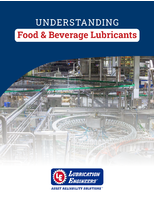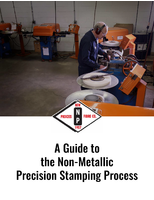BASF at the Fakuma 2012: Plastics Without End
· Thermoplastics in aircraft and on the solar roof
· Long glass fiber-reinforcement for garden tools
· Composite components for automobiles: in production and in the lab
· Brand new: PBT in injection molded food packaging
· Polyurethanes and masterbatch preparations
Engineering plastics, polyurethanes and masterbatch preparations are once again the major topics of this year's BASF exhibit at the Fakuma, the international exhibition for plastics processing in Friedrichshafen. In Hall B4, Booth 4306 the company is displaying its new products for the plastics processing industry from October 16 - 20.
Thermoplastic specialties everywhere: In aircraft, photovoltaics, leisure products and gardening
The lightest airplane trolley
It goes without saying that weight savings are also important outside the automotive industry. The high-temperature thermoplastic Ultrason® E, the polyether sulfone from BASF, has now found a new application in the service sector for aircraft. It is being used in the world's lightest airplane trolley, which weighs only 10 kg. The foamed Ultrason E inside the trolley walls weighs only 40 kg/m³. Additional characteristics include its high-temperature strength, stability, insulating properties, inherent flame retardance and low moisture uptake
Photovoltaics - Mounting fixtures for the roof and open spaces
Polyamides from BASF are finding completely new applications in photovoltaics in the form of mounting brackets and accessories for installation on rooftops and in open spaces. The AIXTRALIGHT CLIP from Aixtra Solar is a plastic mounting bracket that is preinstalled on the roof. The mounting rails to which the photovoltaic module is later attached can then be inserted easily and quickly into this bracket. The extremely rigid polyamide grade Ultramid® A3WG10 that is used to produce the bracket is one of BASF's engineering plastics for which a service life of 20 years can be verified by means of ISO 4892-2 Cycle 1. Another topic to be addressed is the use of plastics for the ground mounts: At the Fakuma, BASF will also be exhibiting support components made from engineering plastics for photovoltaic panels installed in open fields. The concept will be illustrated in the form of a prototype produced in cooperation with Joma-Polytec.
Garden tools with long glass fiber reinforcement
Ultramid® Structure is being used as a structural material not only in the first prototypes of an all thermoplastic wheel rim: The new plug-in garden tool system from the company Freund Victoria Gartengeräte is also benefiting from it. It employs a connecting piece made from this high strength long glass fiber-reinforced polyamide specialty from BASF. As with other components made from Ultramid Structure, the unusual inner structure created by the backbone of long glass fibers can be demonstrated by ashing the part.
Automotive: Thermoplastic specialties and composites
First high-volume application of heat-resistant Ultramid Endure
The highly heat-stabilized Ultramid® Endure, which is suitable for use on turbocharged engines, is of interest to the automotive industry. The first high-volume application of this engineering plastic will be on exhibit at the BASF booth: This polyamide specialty is now being used for mass production of an air intake application on a large family of engines. Here, the exceptional heat aging resistance of Ultramid Endure is a major benefit: The material has a continuous service temperature of 220°C and can withstand peak temperatures of 240°C.
Full steam ahead: Composites
Efficient, lightweight designs for structural body and chassis components in the future require the use of composite materials and composite parts. In this field, BASF will be exhibiting two automotive applications showing different utilization levels: The seat pan used in the Opel Astra OPC is already in production: it is the world's first seat pan used in a production vehicle and is manufactured from thermoplastic laminates with continuous fiber reinforcement. Two Ultramid (PA) grades from BASF come into play here, one as the impregnating material, the other as the overmolding material. With its stiff yet thin walls, the seat pan is about 45% lighter than its predecessor.
A convertible roof module illustrates a different approach that is available only in the form of a concept study at present: BASF and EDAG have developed it jointly to explore the possibilities offered by resin transfer molding (RTM) with BASF materials. The center layer of the demonstrator's sandwich structure is a closed-cell PU structural foam based on Elastolit® D. It functions as a spacer between the carbon fiber laminate layers, provides high part rigidity and gives the roof module good insulating properties. The roof module is more than 35 percent lighter than its aluminum counterpart.
Timed perfectly for the Composites Europe and the Fakuma exhibitions, BASF has announced a cooperative effort with the carbon fiber manufacturer SGL Group with the objective of jointly developing carbon fiber-reinforced composites based on new reactive polyamides.
From intake to charge air manifold: optimized ribbing, integrated intercooler
The company ETM in Saalburg-Ebersdorf is producing an interesting air intake manifold from the BASF engineering plastic Ultramid B3WG6 for VW. Based on its function, the module, which consists of three shells, is better designated a charge air manifold, rather than an intake module, and requires that the plastic exhibit exception dimensional stability. Through its CAE activities, BASF was able to help the customer achieve the required rigidity in the form of optimized ribbing for the central section, which is open on three sides and supports the metal intercooler. This provided not only the desired function integration, but also resulted in a considerable weight reduction.
Brand-new: PBT for injection molded food packaging
The unique characteristics of the engineering plastic PBT (polybutylene terephthalate), preferred for electronic housings until now, yield application opportunities for rigid, injection molded food packaging: The material simultaneously provides excellent water vapor, oxygen and mineral oil barrier properties without the need for additional layers. BASF has already added a special grade for such requirements to its Ultradur®-FC line (FC: food contact). This easy-flowing PBT grade also offers the classic benefits of the material such as thermal stability, chemical resistance, stiffness and strength. It is ideal for thin-walled, injection molded food and cosmetic packaging. Additional applications include coffee cartridges, microwavable packaging as well as inside components for cosmetics sticks. The first packaging prototypes can be seen at the Fakuma.
Laser-transparent PBT in high-volume production application
BASF will also be presenting its PBT grade Ultradur® LUX, which made its debut at the K 2010. This material exhibits twice the laser transparency of conventional PBT grades and opens up new opportunities for reliable laser welding of PBT parts, a process not possible until now. The motor developer Precision Motors Deutsche Minebea (PM DM) employs the high laser transparency of this engineering plastic in the housing cover for its new control module. This module controls the air flow needed to cool modern automobile engines efficiently. In cold weather, an actuator closes adjustable air flaps behind the radiator grille, allowing the engine to reach operating temperature more quickly. The essential property of Ultradur LUX is its enormously improved transparency in the near infrared wavelength range from 800 to 1100 nm, the range needed for laser welding. Thanks to the increased laser transparency in this range, the material can be welded faster than other PBT grades on the market and the process window is considerably wider, reducing the risk of material degradation significantly.
Polyurethane (PU)
At the PU area of the exhibit, visitors will find tailored customer solutions from the Elastollan® (TPU) line of thermoplastic polyurethanes as well as selected automotive applications based on polyurethane systems. These include innovative products from both product lines and cover a wide variety of market sectors.
Masterbatch preparations
BASF Color Solutions will once again be represented at the BASF booth this year with a wide range of masterbatch applications for the coloration and stabilization of plastics, in many cases in cooperation with other BASF business units. Thus, coloring engineering plastics will be a major theme. At extreme processing temperatures of up to 350°C thermal stability is here particularly important. Based on its many years of experience, BASF Color Solutions is showcasing possibilities for long-lasting coloration of wood-plastic composites for the construction sector, while the focus in the packaging and sport & leisure segments is rather on attractive effects: Be it the combination of brilliant special-effect pigments for various packaging materials or luminous neon-colored fibers for textiles. The liquid color assortment of the Liqui-Kolor® product range likewise opens up innovative styling opportunities, and provides fast color changes together with efficient coloring of transparent objects.
On the Internet:
www.plasticsportal.eu
www.basf.de/masterbatch
www.polyurethanes.basf.de
E-mail contact: ultraplaste.infopoint@basf.com
Dr. Sabine Philipp
Phone: +49 621 60-43348
Fax: +49 621 60-49497




